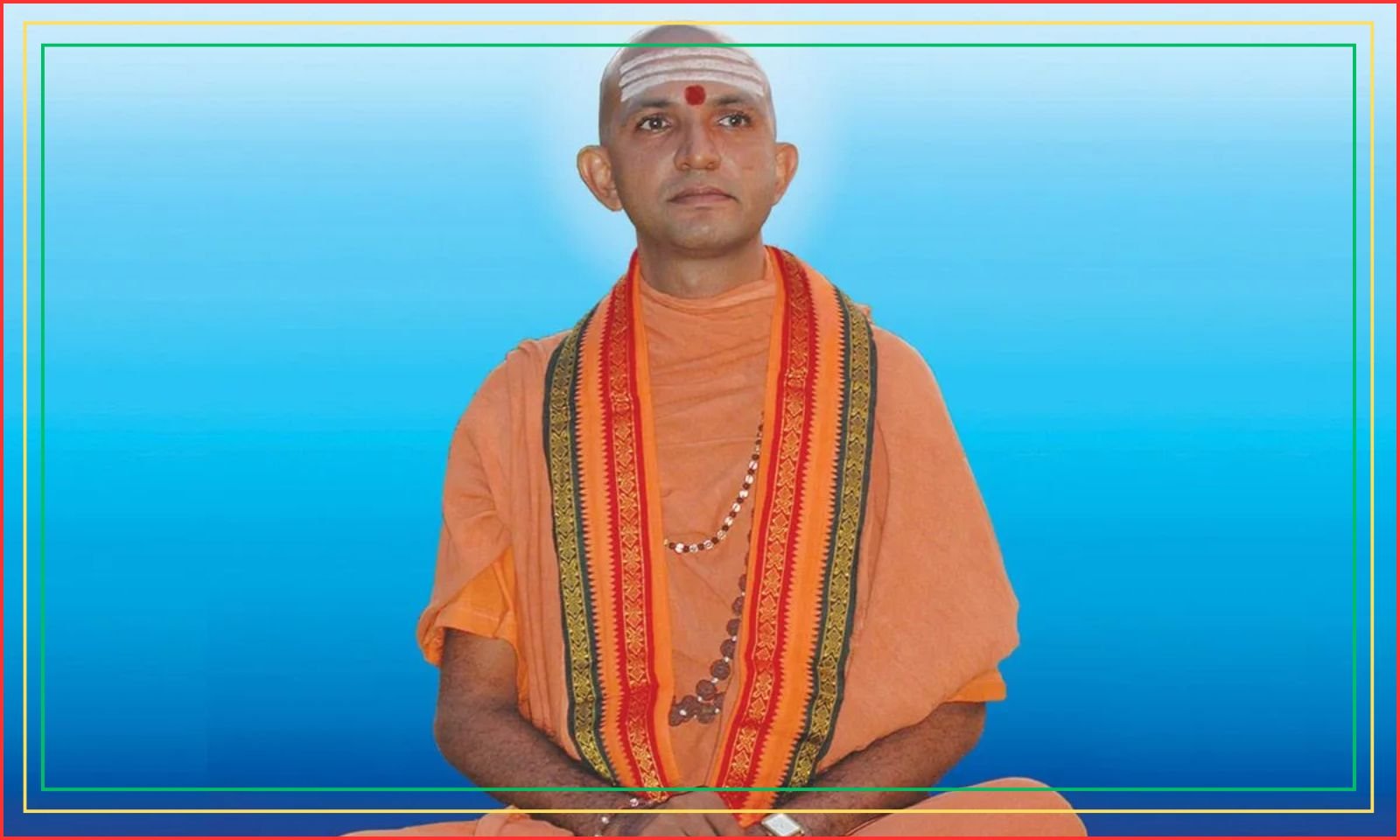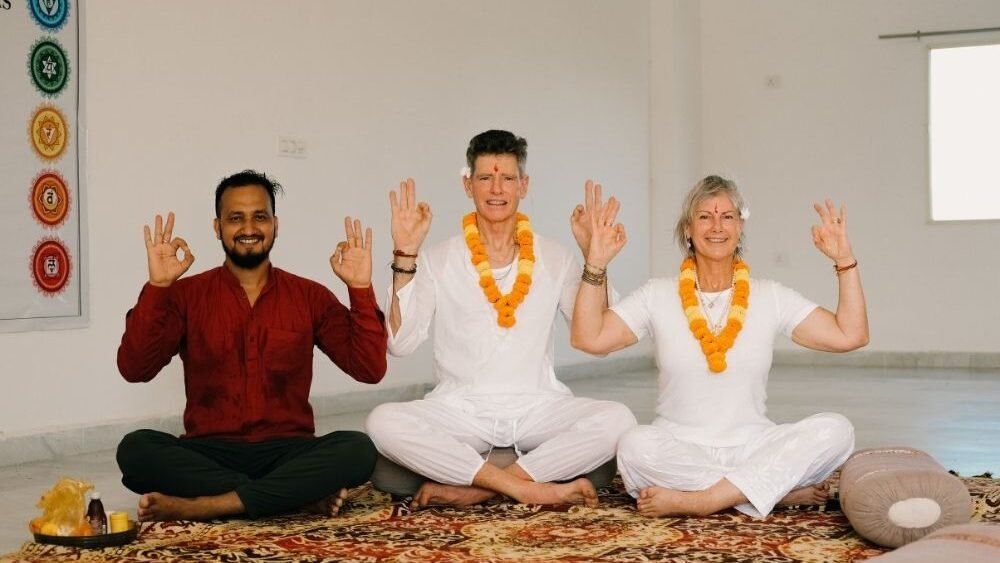
Another aspect of the mind that must be clearly understood is Vrittis. Every mental behavior is perceived by the individual in the form of a vrittis, a condition, a modification. Vritti comes from the word Britta, which means a circle. Therefore, Vritti means a circle or vortex in which one becomes involved and cannot be freed from. One cannot extract oneself from that influence.
The human mind is very weak. People are easily influenced by anything and everything. Positive experiences create a vritti in the mind and negative experiences also create a vritti in the mind. Worry is a vritti of the mind, tension and stress are vrittis, how you perceive life is a vritti, pessimism and optimism are vrittis, negativity and positively are vrittis. Vrittis means a condition, and there are millions of conditions which are not even recognized because the understanding is not deep or evolved enough.
A Vritti arises when any one of the four functions of the mind – manas, buddhi, ahamkara or chitta – becomes prominent. An altered mental state or outlook is experienced at this time, whether positive or negative. Just a drop of ink can color a jar of water, a drop of ahamkara, chitta, buddhi or manas colours the clarity of mind. This change in the natural state of mind is called a Vritti.
Sage Patanjali says that the mind is experienced through vrittis, which are painful as well as pleasurable. He has identified five vrittis which he considered important to achieve the state of dhyana and bring the mind under control. The yoga of Patanjali stops at the level of dhyana, it doesn’t go beyond. Samadhi is an experience, but the effort, the practice, the instruction is up to dhyana and not beyond. For Patanjali, management of the mind was of prime importance, as it would lead to the stage of dhyana. For this reason, he identified the vrittis which are obstructions in acquiring the state of dhyana, the meditate state, and did not identity all vrittis.
The five vrittis mentioned by Patanjali are pramana, proof or right knowledge, viparyana, illusory or wrong knowledge, vikalpa, doubt, nidra, sleep and smriti, memory.
Pramana is connected with buddhi. When buddhi experiences something, it concludes that the subject is not a mere belief, but a proven fact. That which can be experienced is proven. How can you prove the taste of sugar? By experiencing it. How can you prove the heat of fire? Your experience is proof. That which is perceivable, visible, factual and can be the basis of the experience is pramana. It is the basis of knowledge and does not change.
Viparyana is bhranti jnana or illusory knowledge. It is what you surmise or estimate. It is not proof, it is conjecture. If you see smoke in distance, a thought will arise, “There is a fire somewhere.” However, it is not certain as yet whether the cause of the smoke is fire. When a distant object, which cannot be perceived directly, is accepted by the consciousness, it is conjecture. If you need to know the arrival time of a train, you call Railways Enquiries and learn that the train is two hours late. Now you keep estimating when the train will arrive and look for proof based on your estimation. At the end of two hours you make a phone call again and find that the train has been further delayed. There is proof of delay, but your mind is engaged in estimation. This is called illusory knowledge.
Vikalpa, doubt, is a state in which many thoughts crowd the mind. You are not able to follow any one thought to its end. The presence of many thoughts deludes the mind and represents lack of clarity, discrimination and wisdom. Doubt is a condition which overpowers the mind. People doubt each other and they also doubt God and guru. Doubt is an integral part of everything. If I don’t look at somebody, the person will think, “Swamiji doesn’t like me any more.” The doubt will come, which will disturb the mental harmony. If I talk and laugh with one person, someone else will think, “Why is he talking and laughing with that person, he is not even looking at me! ” The doubt will come, and that is Vritti. From doubt issues jealousy, hatred and other negative qualities. Your garden of life is adorned with these negative qualities. Hate, jealousy and greed are all flowering in your garden and you take care of them so well, you protect them and desire that these flowers should grow. You identity with these qualities; you don’t identity with wisdom.
You identify with things that are restrictive in nature; you don’t identify with those that are uplifting. Doubt always give birth to negative vrittis and will always give birth to positive vrittis. Will strengthens the positive while doubt strengthens the negative. Will makes the mind clear, sharp, creative, dynamic and vibrant, while doubt makes the mind clouded.
Sage Patanjali has also explained nidra or sleep as a Vritti, as it is an altered state of consciousness in which there is absence of awareness for a period of time. The absence of light at night indicates not the absence of the world, but the absence of perception. The world will continue to function, but you will not be able to perceive it. Similarly, nidra is absence of awareness from mental dimension, while the presence of awareness in the mental dimension is waking state where you are up, active and alert. The absence of that awareness indicates the sleeping state. Vrittis are active in the waking state, and in the absence of awareness, a vritti is also generated in the form of nidra, sleep or disconnection. You identify with things that are restrictive in nature; you don’t identify with those that are uplifting. Doubt always give birth to negative vrittis and will always give birth to positive vrittis. Will strengthens the positive while doubt strengthens the negative. Will makes the mind clear, sharp, creative, dynamic and vibrant, while doubt makes the mind clouded.
The fifth Vritti identified by Sage Patanjali is smriti or memory, which is an aspect of Chitta. Smriti is an altered state of consciousness in which there is lack of awareness. When you are lost in memory you forget your surroundings, you lose touch with reality and the external world. At that time you are not aware of the mind, the time, the place, your responsibility or duty. Smriti, in the form of memory, which becomes visible and dominates the environment of the mind, becomes a Vritti.
According to Sage Patanjali, the five vrittis are what one needs to know, understand and go beyond in order to attain the state of yoga. Vrittis are born due to the union of the mind with the senses. If mind does not unite with the senses, vrittis will not be born. The senses perceive an object and create a desire in the mind. The two unite at this point and that is where the mind becomes trapped in its own whirlpools. Thus, union of desire and object, senses and mind, gives rise to vrittis.
The experience of Vrittis is internal, or mental. They bring about a change in the normal state of mind. The dominating vritti at any given point of time influences your thoughts and behaviour. Sage Patanjali’s teachings on raja yoga are aimed at checking these vrittis. He says that if there is a Vritti, it will always influence your mind and make it dissipated, and a dissipated mind cannot become one-pointed. It cannot perfect dhyana, experience samadhi or attain a balanced state of life. Therefore, try to be free of these conditions which disturb your mind, which alter your natural state of mind and thinking. Know them, understand them and change them.
He has used a special word in this context: vritti nirodha. He did not use the word virodha, opposition. He doesn’t say that you should oppose your mental states or struggle with them. People usually practise virodha. When you sit down for your japa or meditation, you realize that your mind is running everywhere and you struggle with the mind so it can be inspired to come to a point of focus and practise dhyana. Here you are opposing the dissipated vritti of the mind, but yoga says, not virodha, not opposition, not even avarodha, not supression, but nirodha, cesation.
Nirodha means to stop a process which is taking place. If there is a flow of water, you put your hand on it and it stops. A thought comes, you flash the red light at it. Another thought comes, you again flash the red light at it. Slowly, the number of thoughts reduces. Nirodha means to provide the right direction for a natural process, not by opposing it but by redirecting it. When you become anxious, thinking that your mind is not engaged in the practice and therefore, you will not be benefited, you begin to struggle with yourself, and practise virodha. It is when you understand that yes, your mind is not engaged in the practice and slowly try to bring it under control that the dissipations of the mind will cease and you will attain one-pointedness.
If one drop of black ink falls in a jar of water, never mind, just don’t put ten drops in. Accept what has happened, don’t oppose it, but don’t allow it to be amplified. At the same time, try to clear up the cloudiness that has already taken place. You can do this by adding some clear water to the jar. This is what is achieved through the practices of raja yoga. Managing the vrittis is possible through raja yoga and that was the message of the Yoga Sutras.












Leave a comment: